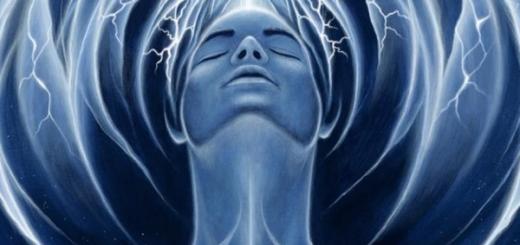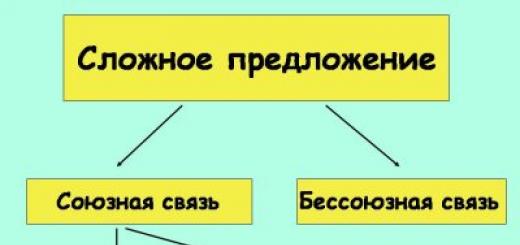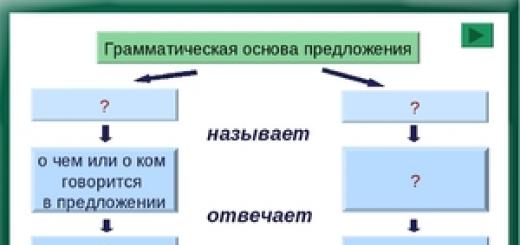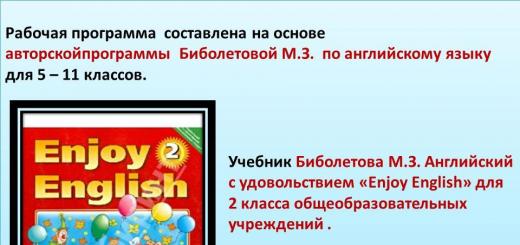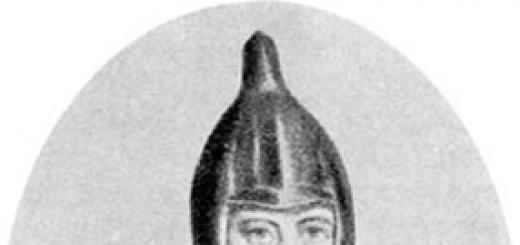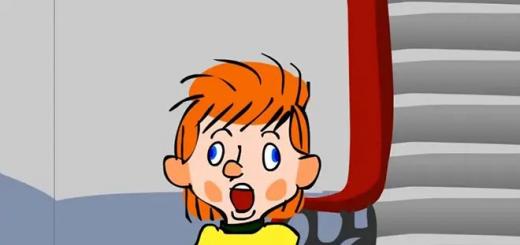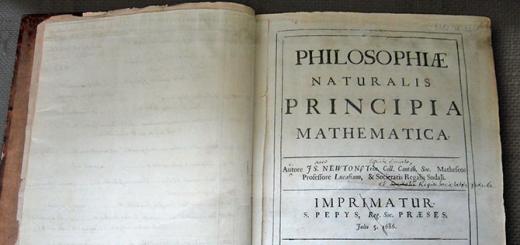When information has become one of the valuable resources and turned into wealth that you want to accumulate, it's time to figure out what is still the real value. Writer, philosopher and humanist Aldous Huxley draws a clear line between knowledge and understanding. A person can live in a cardboard world of pseudo-knowledge templates - or refuse informational garbage and surrender to the power of understanding. There is a choice!
Knowledge is acquired when we succeed in incorporating new experiences into our existing system of beliefs. Understanding comes when we free ourselves from the old and make direct contact possible with the new, with the mystery of our being.
Knowledge is always expressed in concepts and can be conveyed through words and other symbols. Understanding is non-conceptual and therefore cannot be communicated. It is a direct experience that allows only discussion (very approximate) but never transmission. No one can feel the pain or sorrow, joy or hunger of another person. Similarly, no one can experience someone else's understanding of a particular phenomenon or situation. Of course, there may be knowledge of such understanding, and this knowledge may be conveyed through speech or writing. Such transmitted knowledge serves as a useful reminder of the existence of understanding in the past and the possibility of its existence at all times. But it must always be remembered that knowledge of understanding is not the same as understanding (which is the primary material of knowledge).
Knowledge is as different from understanding as a prescription for penicillin is from penicillin itself.
Understanding cannot be acquired by inheritance or hard work. It is something that, under favorable circumstances, comes to us on its own. We all have knowledge all the time; but only occasionally, contrary to ourselves, do we understand the mystery of reality. Consequently, we are rarely inclined to equate understanding with knowledge.
However, the situation is quite different with the opposite delusion - the erroneous assumption that knowledge is tantamount to understanding. Any adult has a vast store of knowledge. Some of this knowledge is right, some is wrong, and some is simply meaningless. Metaphysical doctrines are statements that cannot be tested in practice - at least at the level of everyday experience. The information they convey is nothing more than pseudo-knowledge. Meaningless pseudo-knowledge has always been one of the main driving forces of individual and collective activity. And this is one of the reasons why the course of human history has been so tragic and at the same time so surprisingly grotesque.
Right or wrong, meaningful or meaningless, knowledge and pseudo-knowledge are as common as dirt and therefore taken for granted. Understanding, on the other hand, is as rare as emeralds and therefore highly prized.
Of the wide range of human misfortunes, about a third are inevitable. The remaining two-thirds come from human stupidity and malice, as well as from the phenomena that motivate and justify them: idealism, dogmatism, fanatical missionary work in favor of religious and political idols. But fanaticism, dogmatism and idealism exist only because we constantly commit sins against reason. We sin by ascribing concrete meaning to meaningless pseudo-knowledge; we sin by being too lazy to conceive of multiple causality, mired instead in excessive simplification, generalization, and abstraction; we sin by cherishing the false but pleasant belief that conceptual knowledge and pseudo-knowledge are tantamount to understanding.
The atrocities of organized religion are caused by "mistaking the pointing finger for the moon" - in other words, mistaking the concept expressed in words for the mystery it describes. Out of the misuse of this delusion in most of the great religious traditions of the world, a bizarre exaggeration of the meaning of words has arisen. The exaggeration of the meaning of words often leads to the appearance and veneration of dogmas, to the insistence on the uniformity of faith, the demand for universal agreement with meaningless statements that should be accepted as sacred. Those who disagree with this reverence for words must be "converted", and if conversion is impossible, subjected to either persecution or ostracism.
Direct perception of reality unites people. And conceptualized beliefs, including even the belief in a god of love and righteousness, divide them and set them against each other for centuries.
Oversimplification, generalization and abstraction are sins closely related to the sin of thinking that knowledge and pseudo-knowledge are equivalent to understanding. A person who tends to simplify and generalize claims without proof that "all X are equal to Y" or "all A have the same motive, namely B." The abstract person does not want to deal with individuals, but loves to rant on the topics of humanity, progress, god and history. In the Middle Ages, the favorite generalizations were: all unbelievers are doomed"(for Muslims" all infidels" meant" all Christians", for Christians - "all Muslims") and "in All heretics are driven by the devil". In the 16th and 17th centuries, wars and persecution were justified by the simple belief that " all roman catholics are enemies of god". In the 20th century, Hitler declared that all the troubles of the world have one cause, namely Jews. For the communists, the cause of all the troubles of the world is capitalists.
There are many situations in a person's life when only knowledge - conceptualized, accumulated and transmitted through words - is of practical use. We live in an industrial civilization where no society can thrive without an elite of well-trained scientists and a formidable army of engineers and technicians. The possession and wide dissemination of a large amount of correct, specialized knowledge has become the main condition for the survival of nations.
But it is clear that education must be more than just a means of imparting correct knowledge. It must also teach what Dewey called adaptation to life and self-realization.
But how exactly should adaptation to life and self-realization be encouraged? Modern educators give many answers to this question. Most of these responses refer to one of the two main educational approaches - either progressive or classical.
Progressive responses find expression in the provision of courses on topics such as "family life, consumer economics, job information, physical and mental health, preparation for responsibilities as a citizen and public administration, and the foundations of the sciences." Where classical responses are preferred, educators offer courses in Latin, Greek, modern European literature, world history and philosophy.
Progressive and classical approaches to education are not incompatible. It is quite possible to combine training in the local cultural tradition with psychological and vocational training, as well as training in the sciences. But is this enough? Can such education lead to self-realization? The answer is obvious: no.
We are not born with humanity, but develop it. We learn to speak, we accumulate conceptualized knowledge and pseudo-knowledge, we imitate the elders, we form stable patterns of thinking, feeling and behavior and gradually become human beings. But the things that make us human are the same things that hinder self-realization and understanding. We humanize ourselves by imitating those around us, learning their language and acquiring the accumulated knowledge that language has made possible. But we begin to understand only when, freed from the tyranny of words, conditioned reflexes and social contracts, we establish direct contact with experience. The greatest paradox of our lives is that in order to understand, we must first burden ourselves with all the intellectual and emotional baggage that stands in the way of understanding.
Learning, says Lao Tzu, consists in adding to one's reserves day by day. The practice of Tao is subtraction.
By adding one conceptual knowledge to another, we make conscious understanding possible; but this potential understanding can only be actualized after subtracting everything we have added. It is because we have memories that we are convinced of our identity as human beings and as members of a particular society.
Actual memory is an exceptional blessing. But psychological memory—memory bearing an emotional charge, positive or negative—is a source, at worst, of neurosis and insanity, and at best of distraction from the task of understanding. Emotionally charged memories strengthen family bonds and bring communities together. At the level of understanding, charity and artistic expression, a person has the power to go beyond his cultural tradition. On the level of knowledge, manners and customs, he can never stray far from the mask created for him by family and society. And while it is our duty to “honor our father and mother,” our duty is also to “hate our father and mother, and wife and children, and brothers and sisters, and, moreover, our very life” - that socially conditioned life that we perceive for granted.
We have no more right to revel in the emotionally charged memories of past happiness than we have to mourn past misfortunes and agonize over old grievances. And we have no more right to spend the present moment enjoying hypothetical future pleasures than to spend it worrying about possible catastrophes. We must stop remembering happy times and accept our present unhappiness. John the Baptist gave the devastation of memory second place after the state of union with God and considered it a necessary condition for this union.
People who live with unpleasant memories become neurotic; people who live in pleasant memories become somnambulists. And only those who understand this reality in the form in which it manifests itself, moment by moment, are awake.
Some emotionally charged memories shared by all members of a particular society are organized into religious, political or cultural traditions. These traditions are systematically hammered into the heads of each new generation and play an important role in their formation as citizens.
The nature of the conditioned reflex is such that when the bell rings, the dog secretes gastric juice; when a revered image is displayed or a constantly repeated creed is uttered, the heart of the believer is filled with reverence, and the mind with faith. This happens regardless of the content of the repeated phrase and the nature of the revered image. The person is not responding to reality in the present moment; he is reacting to something that automatically triggers a pre-suggested post-hypnotic directive.
"If you start looking for the Buddha, you will not find him"
"If you deliberately try to become a Buddha, your Buddha is samsara"
"If a person seeks the Tao, he loses the Tao"
"The one who saves his soul will lose it"
The more conscious effort we make to achieve something, the less we succeed. Success comes only to those who have mastered the paradoxical art of simultaneously doing and not doing, combining relaxation with activity, releasing control so that the immanent and transcendent unknown quantity can come into its own. We cannot bring ourselves to understand; at best we can develop a state of mind in which understanding can come.
What is this state?
It is definitely not a state of limited consciousness. Reality as it is, moment by moment, cannot be understood by a mind subject to post-hypnotic suggestion or conditioned by emotionally charged memories in such a way as to react to the present as if it were the past. A mind trained in concentration is equally unprepared to understand reality. After all, concentration is just a systematic exclusion, a blocking of consciousness for everything except one thought, one image, one ideal. But no matter how true, sublime or sacred they may be, no thought, no image and no ideal can contain reality or lead to its understanding.
Understanding comes when we are fully conscious - conscious to the limits of our mental and physical capabilities. "Know thyself" - this advice, as old as civilization itself, is in fact a call to full awareness. For those who practice it, full awareness reveals the limitations of what each of us calls our own Self and the complete absurdity of its claims. In a word, full awareness begins with the realization of one's own ignorance and impotence.
May I raise my right hand? No. I can only give instructions; the actual raising of the hand is done by someone else. By whom? I dont know. Why? Don't know. And after I've eaten, who digests bread and cheese? When I cut myself, who heals the wound? While I sleep, who gives strength to a tired body? I can only say that I can't do any of this. The primary truth of Descartes "I think, therefore I am" on closer examination turns out to be an extremely dubious statement. Am I really thinking? Wouldn't it be more correct to say: "Thoughts arise by themselves, and sometimes I am aware of them"? My thoughts are a collection of mental, but still external, facts. I don't invent my best thoughts; I find them.
Full awareness thus reveals the following facts: that I am completely ignorant and helpless, and that the most valuable elements of my personality are unknown quantities that exist somewhere outside as objects of the mind beyond my control. At first, this discovery may seem rather humiliating and even depressing. But if I wholeheartedly accept these facts, they will become a source of peace and joy. I am ignorant and helpless - and yet I am alive and well. From these two sets of facts - my survival on the one hand and my ignorance and impotence on the other - I can only conclude that the Not-Self that takes care of my body and gives me my best thoughts must be incredibly intelligent and strong. We know very little and can achieve very little; but we are free, if we choose, to interact with greater power and more perfect knowledge.
Be fully aware of your actions and thoughts towards the people around you, as well as the events that move you at every moment of your life.
Realize sincerely, without prejudice, without judgment, without reacting to real mental processes with the help of previously learned words.
If you do this, memory will be emptied, knowledge and pseudo-knowledge will be reduced to their proper position, and you will gain understanding - in other words, you will be in direct contact with reality at every single moment.
Full awareness opens the way to understanding.
And when any situation is understood, the essence of all reality appears, and the meaningless sayings of the mystics are seen as true. One in all and all in one; samsara and nirvana are one and the same; all things are empty, and at the same time all things are the dharma body of the Buddha, and so on. In the case of conceptual knowledge, such phrases are meaningless. Only when there is understanding do they make sense. Of all the beaten, filthy words in our vocabulary, "love" is undoubtedly the most vulgar and false. Shouted from many pulpits, lustfully sung by millions of loudspeakers, it has become an insult to good taste, an obscenity that a person does not dare to utter.
And yet it must be said; After all, in the end, the last word is Love.
Each person comes into this world through birth, and literally from the first moment huge flow of information, coming through the senses, which the child begins to absorb like a sponge, mastering this world and adapting to it. He grows, learns, matures, acquires knowledge, experience, and all this happens first in the family, in the circle of relatives and friends, then continues at school, in the labor collective, etc. A person cognizes this world and develops, mastering knowledge accumulated by previous generations, and also discovers new knowledge for themselves in the course of their activities. At the same time, the new acquired knowledge and experience of a person become the property of the society in which he lives, and they, in turn, can be used by other people for their development.
Depending on the quality and quantity of acquired knowledge, as well as on the environment in which a person is, he forms a certain idea of how this world works, and what place he himself occupies in it, i.e. a certain outlook. Before continuing, it is necessary at the very beginning to define the terms in order to equally understand the meaning and essence of the issues under discussion. So, to answer the questions: what is information and what is knowledge, the definitions of Academician N.V. Levashova:
« Information- this is a message received by us through the senses about what is happening around and inside us. Knowledge is nothing but meaningful and understood by us information about what is happening around and inside us.
At the same time, it should be borne in mind that the information on the basis of which knowledge is formed can be true or false, therefore, knowledge can be both true and false.
In its turn, true- this is the content of our knowledge, which does not depend on the subject. For example: the statement “The earth is spinning” is true, and it does not depend on what a person thinks about it. The depth of understanding of the truth depends on the level of human evolutionary development.
When studying worldview It is possible to single out three stages of consistent worldview development of the world: “worldview”, “worldview”, “worldview”.
By the way, man is just different from animals in that he can control your emotions, is able to pose questions for himself, and then look for and find answers to them, developing his brain, his thinking, acquiring knowledge with which you can learn about the world around you, follow the path of development, and this path sooner or later, if you have the desire and will leads to truth.
Real knowledge is power, having which you can change the world for the better without destroying yourself and nature. Otherwise, a person who is not interested in knowledge and ignores it becomes ignorant, who is very easy to control, hanging “noodles” on his ears (giving false knowledge) and doing whatever he wants with him. Such a person, whether he understands it or not, at best, stops in his development, and at worst, he follows the path of degradation and sinks to the level of an animal.
And now let's discuss the question: what knowledge has priority (and whether it has) over other knowledge for the development and formation of a certain worldview based on this knowledge, both for an individual and for society as a whole, because knowledge is different for knowledge?
For example, knowledge of cooking is important because the health of one or more people depends on it. But, for example, knowledge of the laws of man, and on their basis the creation of control technologies, allows you to manipulate the consciousness of a huge number of people at the same time, while people will not even guess that someone controls them against their will. Therefore, knowledge that relates to various spheres of life can be arranged in descending order of the importance of this knowledge for the spheres of human life, and the formation of a worldview based on false or real information depends on the quality of this knowledge. In the first case, this degradation, in the second development.
Knowledge about the structure of the world
The religious point of view on how the world works is very simple: everything in the world was created by God, and everything people are "God's servants"(This equally applies to the leading religious teachings: Judaism, Islam and Christianity, which have the same roots, as well as to various esoteric teachings, only God has other names there: the Absolute, the Higher Mind, etc.). For example, in the Old Testament, in which there are almost a thousand pages, a description of how this happened and how everything in the world works takes a little more than a page (Gen. "Creation of the World"). And all this is presented as the ultimate truth, because. ministers claim that these are the revelations of God, transmitted through Moses to all people.
For a person who has at least a little convolutions in his head and who has not forgotten how to think for himself, all this cannot be called otherwise than the delirium of a madman. Previously, those who did not agree with this point of view were declared heretics and simply burned at the stake. At present, they are even ready to accept the theory of the "Big Bang" with the proviso that these are also the works of God, although God himself did not say anything about this. It turns out that the ministers of the church arrogate to themselves the right to interpret the word of God, depending on the situation. A very "convenient" position of the church, based on outright lies and designed for ignorant people, allows you to "powder the brains" of those who have not developed thinking and put all this nonsense into their consciousness, as a result, the shepherd (shepherd) gets another ram into his flock (flock).
The worldview of such a person is based only on faith into what the priest says, because many, due to their ignorance, do not read the word of God, the Bible, and even there, with careful and conscious reading, you can find a lot of curious things, from which many can open their eyes. and the highest hierarchs of the church simply use it as a tool for enrichment and retention of power by forming a religious worldview among people based on faith in God, but this has nothing to do with reality.
To the question: "Who or what is God?" there is no intelligible answer, except that it is unknowable by our mind and silence ... And he is also the All-Seeing, All-Knowing, All-Loving, Almighty and a lot of different All ... And at the same time, many wars and crimes in which a huge number of people died are presented , how deeds pleasing to God(for example, the Crusades). With his name on the banners, people, carriers of true knowledge, books, any material artifacts that reveal all the lies of the religious worldview were destroyed by the hands of the clergy.
But, what is being taught to our children: quote from the textbook “Man. Society. State. Textbook for the 11th grade”: “The specifics of religion are worldview and attitude, as well as the corresponding behavior, determined by a person’s belief in the existence of supernatural forces (God) and a sense of connection with them and dependence on them. God is the highest object of religious faith, a supernatural being with extraordinary properties and powers.” Question: What worldview do these statements form? Answer: any, with the exception of worldview, based on worldview.
Let's ask ourselves another simple question: can God lie? The answer suggests itself: of course not, because only the Devil can deceive. Now look how the priests shamelessly lie. I will give just one example of a blatant lie that the Slavs did not have a written language before Cyril and Methodius. And what about the Initial Letter, Glagolitic, with features and cuts, runic inscriptions of the Slavic-Aryans? And such. Do you think that the hierarchs of the church do not know the truth? Draw your own conclusion.
scientific point of view how the world works, in most cases, cannot give an intelligible and reasonable answer, due to the fact that she does not know anything about 90% of the matter of the Universe, and building a picture of the world on the knowledge of 10% is absurd, this is even clear to a child, after all, you can’t put together a picture from one cube if it is drawn on ten. Having accumulated a huge amount of factual information about the physical world, modern science has no understanding of the essence of the ongoing processes. Not knowing the true laws of nature, but observing only their manifestations, science follows the false path of knowledge, destroying nature, the environment and leading humanity to death.
Everything that contradicts the "generally recognized" theories of official science, even if the postulates of these theories have long been disproved by the scientists themselves (for example: the postulates on which Einstein is built are false) is considered the ultimate truth, and everything that does not agree with the official point of view of the scientific community, is declared pseudoscience. At the same time, the “academicians” affirm the infallibility of their position with their authoritative opinion, and this opinion is imposed on everyone else.
Often this has nothing to do with reality, and a worldview based only on "authoritative" opinions, even the most titled scientists in various fields of knowledge (physics, chemistry, biology, medicine, pedagogy ...), is no different from a religious one. Thereby science becomes religion.
For example: scientists have long tried to find the so-called "Divine Particle"(Higgs boson) using the Hadron Collider, and recently said that they kind of discovered it and even wanted to drink to it. They believe that after the Big Bang, when the Universe started to form and the electrons were moving around randomly, but when they began to interact with the "Higgs Field" (it is formed from particles of the Higgs boson), they slowed down and gained mass and structure, thus forming the physical composition of the Universe. .
“The Higgs field is like thick syrup,” explains Dr. Alan Barr, a nuclear physicist at the University of Oxford, “it captures particles that move around and turns them into matter.” Experts are not 100% sure that this is the “God Particle” itself, but they agree that the found particle is very similar to it. "It's almost a Higgs boson," Barr said. "You could say it's a very close relative of the particle, but we have to look at the finer details to learn more about it," he added.
Explanation like in kindergarten: there were already protons and electrons, but they did not have mass, which means that these are not protons and electrons, but something else.
J. Orwell("Year 1984"): "He who controls the past controls the future, and who controls the present, he is omnipotent over the past".
Knowledge of the moral laws of human development, as a biological species built into the ecological system of the earth, and occupying a certain niche, allows you to consciously choose a creative path of development or a destructive one. In the first case, this path is based on moral standards that are unique to reasonable beings, such as honor, conscience, nobility, compassion, self-sacrifice, love (in the spiritual sense of the word), etc., giving the possibility of endless development, which allows, under certain conditions, to reach the level of creation. This path is not easy, it requires great willpower, fortitude, hard work and great responsibility from a person, but at the same time it brings great joy of creativity.
What would you like to strive for - knowledge or understanding? Many people do not see the difference in these two concepts, but sometimes it is quite obvious. For example, remember those situations when you read a book, and then eventually forgot what it was written about. Think of a time when you didn't forget what an article in the February issue of your favorite magazine was about, or what a movie was about. In the first case, you have gained knowledge, and in the second, understanding.
The education system is designed in such a way that it gives children knowledge, but does not teach them to understand this knowledge. That is why many of the knowledge that you received in your school years were quickly forgotten, causing only bewilderment: “Where did they go?”.
Knowing and understanding are two different things. You can know without understanding. But it is impossible to understand without knowing. Understanding is the end result when knowledge turns into deep and solid conclusions that become part of his mind. To know is to have superficial information about something. A knowledgeable person operates with those concepts that were given to him, and an understanding person is guided by his own judgments. Naturally, knowledge can be forgotten over time, and the conclusions made on the basis of a person's understanding of information remain for life.
Moreover, it was noticed that until a person tries the knowledge given to him in practice, they will be superfluous information in his memory. That is why it is necessary not only to study something, but also to use the information received in life, and then analyze, reflect and make your own judgments about what you received in real life.
“Experience is knowledge of the individual, and art is knowledge of the general ... knowledge and understanding are more related to art than to experience, and we consider those who own some kind of art to be wiser than those who have experience, for everyone’s wisdom depends more on knowledge, and this is because that the former know the cause, while the latter do not…those who have experience know the “what” but do not know the “why”; those who know the art know “why”, that is, they know the reason ... Thus, mentors are wiser not because of the ability to act, but because they have abstract knowledge and know the reasons ... art is more knowledge than experience, because those who know the art are able to teach but those who have experience are not capable.
2.2. What assessment did Aristotle give to generally accepted ideas of wisdom?
Aristotle said that "wisdom is the science of certain causes and beginnings." He emphasized the following opinions about wisdom:
"The wise, as far as possible, knows everything, although he does not have knowledge of each subject separately,"
“we consider wise the one who is able to know the difficult and not easily comprehensible for a person”,
"the wiser is the one who is more accurate and more able to teach the identification of causes",
“of the sciences, wisdom is more that which is desirable for its own sake and for knowledge, than that which is desirable for the sake of the benefit derived from it,”
“of the sciences, to a greater extent, wisdom is that which dominates, to a greater extent than auxiliary, for the wise one should not receive instruction, but instruct, and he should not obey another, but he who is less wise ... ".
2.3. What type of knowledge did Aristotle refer to as the realm of wisdom?
Aristotle divides all knowledge into 3 types, 3 groups: practical, creative and theoretical knowledge.
Practical knowledge includes ethics, economics and politics, that is, it implies the ability to act, to live in this world. Ethics is the ability to deal with others.
The knowledge of an artisan is already creative knowledge.
Theory is contemplative knowledge that has no vital value, but this is the paradox that theoretical knowledge is of great value for a true philosopher, since it is the knowledge of a free person. It is most valuable because it is free, because practical and creative knowledge exists for a purpose. And theoretical knowledge is for the sake of knowledge itself, therefore it is the highest, most valuable, free. This type of knowledge can be attributed to the realm of wisdom.
2.4. Why doesn't "knowledge for profit" lead to wisdom?
Aristotle believed that “knowledge for the sake of profit” does not lead to wisdom, since people began to philosophize in order to get rid of ignorance, that is, they began to strive for knowledge for the sake of understanding, and not for the sake of any benefit.
2.5. What state of man opens the way to knowledge?
Aristotle said that perception by senses is characteristic of everyone, and therefore it is easy and there is nothing wise in it. The most difficult thing for a person to know is the most general, since it is the furthest from sensory perceptions. That is, when a person perceives everything through feelings, he cognizes this “everything”.
The sciences feed young men,
They give joy to the old,
Decorate in a happy life
Save in case of an accident.
(M. V. Lomonosov)
An educated person is not just a person who has a diploma of completed education. This concept is many-sided and multifaceted, it consists of many criteria that are formed throughout the life of an individual.
History pages
What does an educated person mean? Surely many of us sooner or later asked this question. To answer it, we must turn to history. Namely, to those days when humanity began to make progress in the development of civilization.
Everything was created and done gradually. Nothing appears at once, at the wave of the mighty hand of the Creator. "In the beginning was the Word, and the Word was God." Communication, gestures, signs, sounds were born. It is from these times that the concept of education should be considered. People had a common language, an initial base of knowledge that they passed on to children from generation to generation. Man made efforts to develop writing and speech. Drawing from these sources, the river of time has brought us to the present. There were many meanders in the channel of this river, incredible work was invested and colossal work was done. Yet this river brought us into the life we see it now. Books have preserved and conveyed to us everything that man has created over the centuries. We draw knowledge from these sources and become educated people.
Educated person: concept, criteria, aspects
The interpretation of this term is ambiguous, researchers offer many definitions and variations. Some believe that an educated person is an individual who has graduated from an educational institution and has undergone comprehensive training in a certain field of knowledge. For example, these are doctors, teachers, professors, cooks, builders, archaeologists, managers and other specialists. Others argue that, in addition to state-commercial education, a person must also have social, life experience gained in travel, trips, in communication with people of different ethnic groups, classes and levels. However, such an interpretation is incomplete, since an educated person is a person of certain moral principles who has managed to achieve something in his life thanks to his knowledge, erudition, culture and determination. From all this, we conclude that an educated person is not only the most intelligent person, but also a person with a capital letter. Therefore, most researchers give a more accurate description of this term. They believe that an educated person is an individual who is offered by civilization itself. He has cultural and life experience, historically accumulated in the process of development and formation of culture, industry, industry, etc.
The image of an educated person is made up of many criteria and personality traits:
- Having an education.
- Language proficiency.
- Culture of behavior.
- Expanded horizons.
- Erudition.
- Wide vocabulary.
- Erudition.
- Sociability.
- Thirst for knowledge.
- Eloquence.
- Mind flexibility.
- The ability to analyze.
- Striving for self-improvement.
- Purposefulness.
- Literacy.
- upbringing.
- Tolerance.

The role of education in human life
An educated person seeks knowledge for orientation in the world. It is not so important for him to know how many elements are in the periodic table, but he needs to have a general idea of \u200b\u200bchemistry. In each area of knowledge, such a person is guided easily and naturally, realizing that single accuracy is absolutely impossible in everything. This allows you to see the world from a different angle, navigate in space, makes life bright, rich and interesting. On the other hand, education acts as enlightenment for everyone, endowing with knowledge to be able to distinguish reality from imposed opinion. An educated person is not influenced by sectarians, advertising tricks, as he constantly analyzes what he sees and hears, forming the only correct decision about the reality of what is happening. With the help of education, the individual achieves his goals, improves himself and expresses himself. Thanks to reading, an erudite person listens to his inner world, finds important answers, subtly feels the world, becomes wise, erudite.
The Importance of School Education
The first stage in the formation of each individual as an "educated person" is the primary educational institution, namely the school. There we get the basics of knowledge: we learn to read, write, draw, think in detail. And our future development, as a full-fledged representative of society, largely depends on how much we assimilate this initial information. From birth, parents develop a craving for knowledge in the child, explaining the importance of education in life. Thanks to the school, the abilities of each student are revealed, a love of reading is instilled, and the foundations are laid in society.
The school is the foundation for the formation of every educated person. It solves a number of important tasks.
- The primary education of a person, the transfer of social, life, scientific experience in significant areas, historically accumulated by civilization.
- Spiritual and moral education and personal development (patriotism, religious beliefs, family values, culture of behavior, understanding of art, etc.).
- Preservation and strengthening of health, both physical and mental, without which a person cannot fulfill himself.

Self-education and social, life experience is not enough to become educated, so the role of the school in the life of a modern individual is invaluable, irreplaceable.
The role of books in education
At present, teachers perceive the image of an intellectual as an ideal of an educated person, to which every student, student, and adult should strive. However, this quality is not a priority or mandatory.

How do we imagine an educated person
Each of us has our own on this topic. For some, an educated person is someone who has finished school. For others, these are people who have received a specialty in a particular field. Still others consider all smart people, scientists, researchers, those who read a lot and educate themselves, to be educated. But education is the basis of all definitions. It radically changed life on Earth, gave a chance to fulfill oneself and prove to oneself that everything depends on a person. Education gives a chance to take a step into another world.
At each stage of personality formation, a person perceives the concept of education in different ways. Children and students are sure that this is just the smartest person who knows and reads a lot. Students look at this concept from the point of view of education, believing that after graduating from an educational institution, they will become educated people. The older generation perceives this image more broadly and thoughtfully, realizing that, in addition to learning, such a person must have his own store of knowledge, social experience, be erudite, well-read. As we can see, everyone has their own idea of what an educated person should know.
Self-realization
When a person graduates from school, he experiences extraordinary joy, positive emotions, accepts congratulations and wishes to become a worthy person in the future. Having received a certificate, each graduate embarks on a new life path to self-realization, independence. Now you need to take an important step - choose an educational institution and a future profession. Many choose a difficult path to achieve their cherished dream. Perhaps this is the most important moment in a person's life - to choose a professional activity according to one's soul, interests, one's abilities and talents. The self-realization of the individual in society, his further happy life depends on this. After all, an educated person is, among other things, a person who has achieved success in one area or another.

The importance of education in our time
The concept of "education" includes the words - "to form", "to form", which means the formation of a person as a person. Forms it internally "I". Both in front of himself in the first place, and in front of the society in which he lives, is engaged in his field of activity, works and just spends his free time pleasantly. Undoubtedly, a good education in our time is simply irreplaceable. It is a decent education that opens all the doors for the individual, makes it possible to get into "high society", get a first-class job with decent wages and achieve universal recognition and respect. After all, knowledge is never enough. With every day we live, we learn something new, we get a certain portion of information.
Unfortunately, in our twenty-first century, the age of digital technologies, communications and the Internet, such a thing as "education" is gradually fading into the background. On the one hand, it would seem that it should be the other way around. The Internet, a bottomless source of useful information, where everything is available. There is no need to once again run around libraries, fellow students in search of a missed lecture, etc. However, along with useful information, the Internet contains a huge amount of useless, unnecessary and even harmful information that clogs the human brain, kills the ability to think adequately, and knocks a person down. out of the way. Often, low-quality resources, useless social networks lure humanity much more than information from libraries that is useful for self-development.
What does ignorance lead to?
An uneducated person is under the delusion that he knows everything and has nothing more to learn. While an educated person will be sure until the end of his life that his education is not completed. He will always strive to know what will make his life even better. If a person does not strive for knowledge of the world and self-development, then in the end he comes to everyday life, a routine where work does not bring either pleasure or sufficient income. Of course, ignorance does not mean a complete lack of any knowledge, certificates. A person can have several educations, but be illiterate. And vice versa, there are quite educated, well-read people who do not have a diploma, but have high intelligence, erudition due to independent study of the world around them, sciences, and society.
It is more difficult for uneducated people to fulfill themselves, to achieve what they want, to find something to their liking. Of course, remembering our grandparents, who at one time worked more than studied, we understand that it is possible to go through life without education. However, you will have to overcome a difficult road, work hard physically, spoiling both mental and physical health. Ignorance can be imagined as an isolated cube in which a person lives, not wanting to go beyond its boundaries. A raging life will boil and rush around, with magnificent colors, filled with vivid emotions, understanding, awareness of reality. And whether it is worth going beyond the edge of the cube in order to enjoy the true, fresh air of knowledge - only the person himself has to decide.
Summing up
An educated person is not only one who has finished school, an educational institution well and has a highly paid job in his specialty. This image is unusually multifaceted, includes a culture of behavior, intelligence, good breeding.

The main qualities of an educated person:
- education;
- literacy;
- the ability to communicate and express one's thoughts correctly;
- politeness;
- purposefulness;
- culture;
- the ability to keep oneself in society;
- erudition;
- desire for self-realization and self-improvement;
- the ability to subtly feel the world;
- nobility;
- generosity;
- excerpt;
- diligence;
- sense of humor;
- determination;
- wit;
- observation;
- ingenuity;
- decency.
The concept of "an educated person" is interpreted in different ways, but the main thing in all definitions is the presence of education obtained in various ways: with the help of school, university, self-education, books, life experience. Thanks to knowledge, each of us can reach any heights, become a successful, self-fulfilled personality, a full-fledged unit of society, perceiving this world in a special way.
At present, it is difficult to do without education, because any field of activity requires certain skills and abilities. And to live in the world without knowing anything about it, like a primitive man, is absolutely meaningless.
Finally
In the article, we examined the main criteria, definitions of an educated person, answered the question of what it means to be a cultured person. Each of us regards and looks at things according to his social status and ability to perceive the world around him. Some do not even realize that it is bad for an intelligent person to say insulting things to the interlocutor. Some learned this truth from an early age. Indeed, the worldview of a person is primarily influenced by the education of people who put certain information into it, were guides to this life.
We also found out that a well-read person is an individual who reads not only special, educational literature, but also works of the classics. Much in this world is interconnected, but it is education that plays the main and decisive role. Therefore, it is worth taking it with all seriousness, desire and understanding. We are the masters of our lives. We are the creators of our own destiny. And how we live this life depends entirely on us. Despite the difficulties, political or military, our ancestors created excellent conditions for our life. And it is in our hands to make these conditions even better for our descendants. We need education in order to arrange our lives according to our own desire and become a happy person.

Raising the level of your education through the Internet is difficult. In order to become an erudite person, one must not forget to visit the library and read the books of an educated person. We bring to your attention popular publications that every educated person must read, this will make you an interesting, well-read, cultural interlocutor.
- Abulkhanova-Slavskaya K. A. Activity and psychology of personality.
- Afanasiev VG Society: consistency, knowledge and management.
- Brauner J. Psychology of knowledge.
